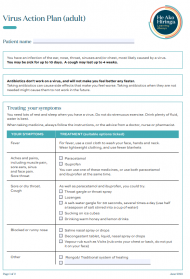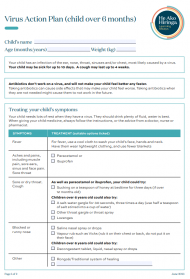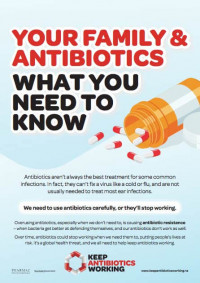Babies, older adults and people with a weakened immune system should see their doctor if they get a viral infection.
However, most people can rely on their immune system to fight off the majority of viral infections. Therefore, treatment for most viral infections aims to ease symptoms while you wait to recover. This can include:
- resting at home
- sipping water for hydration
- drinking lemon and honey drinks for coughs and colds
- taking paracetamol or ibuprofen to relieve pain and fever.
If needed, antiviral medicines can be used for HIV/AIDS and cold sores.
Virus action plans
He Ako Hiringa has developed virus action plans for adults and children. An action plan can be used to help you manage your symptoms and know when to get help. You can download one for yourself or your tamariki and ask your healthcare provider to help you fill it in. You can find virus action plans in a range of languages here.(external link)
Do antibiotics help viral infections?
Antibiotics are useless in the treatment of viruses, as antibiotics only kill bacteria. Using antibiotics for viral infections can cause antibiotic resistance. Antibiotic overuse makes bacteria change so they are resistant to antibiotics – the antibiotics can’t kill them anymore. The more often antibiotics are used, the more chances bacteria have to become resistant.
Antibiotics need to be saved to treat severe bacterial infections.









